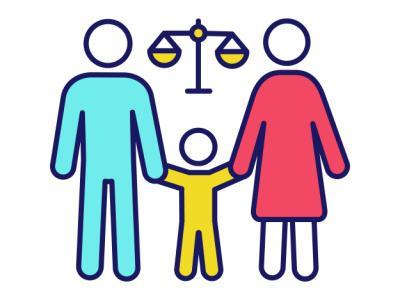Wheaton |
St. Charles |
Sycamore
 630-665-7300
630-665-7300
How Can Mediation Be Used to Resolve Child Custody Disputes?

Child custody disputes can be emotionally challenging, and they can involve a variety of complex legal issues. When parents who are going through the divorce process or are no longer in a relationship disagree about how to handle issues related to their children, they may turn to the court system for resolution. However, litigation in family court can be costly and time-consuming, and it can lead to increased levels of conflict between parents. To help avoid these issues, parents may utilize other options as they work to resolve child custody disputes.
Mediation is an alternative dispute resolution process that allows parents to work together with the help of a neutral third party—a mediator—to find mutually acceptable solutions to their child custody issues. An attorney who is trained in mediation and has experience helping resolve family law disputes can help parents work together to reach agreements that will protect their children's best interests.
The Role of a Mediator
A mediator is not a judge or decision-maker, and they will not take sides or advocate for either parent during discussions of child custody issues. Instead, the mediator serves as a facilitator, helping parents communicate effectively and reach agreements on various aspects of child custody, including parenting time schedules, holidays and vacations, decision-making authority, and any other relevant concerns.
The mediator guides discussions and ensures that each parent has an opportunity to express their viewpoints without interruption or hostility. They can help identify common interests while encouraging cooperation between parents throughout the mediation process. They can also help parents understand their legal rights and requirements, ensuring that their child custody agreement will be legally valid.
The Benefits of Mediation
There are several benefits of using mediation as opposed to resolving child custody issues through litigation:
-
Promotes collaboration: Unlike courtroom battles, which can be very adversarial, mediation promotes cooperation between parents by fostering open communication and emphasizing problem-solving skills. This collaborative approach can lay a foundation for healthier co-parenting relationships in the future.
-
Cost-effective: Mediation is typically less expensive than going to court, as it requires fewer formal procedures. It may also allow parents to resolve their disputes more quickly, since they will not need to schedule court dates and rely on the availability of a judge or their attorneys.
-
Confidentiality: The discussions that take place during mediation are fully confidential. This ensures that parents can freely express their concerns and explore potential solutions without fear of their statements being used against them in court proceedings.
-
Flexibility: Mediation allows parents to have greater control over the outcome of their case. It enables them to design creative parenting plans tailored specifically to meet their unique needs and circumstances, rather than relying on a judge's decision, which may be based on limited information.
The Process of Mediation
The mediation process typically involves the following steps:
-
Initial meeting: The mediator may meet individually with each parent to learn about their concerns, objectives, and priorities. This meeting also serves as an opportunity for parents to ask questions about the mediation process.
-
Joint sessions: Both parents attend sessions facilitated by the mediator. During these sessions, they will discuss various issues related to child custody and work towards reaching agreements that are in the best interests of their children.
-
Drafting agreements: The mediator will assist in drafting a parenting plan that addresses all relevant issues related to the couple's children and meets all legal requirements.
-
Court approval: Once an agreement has been reached, the couple will attend a court hearing where their parenting plan will be reviewed by a judge. If the judge determines that the agreement is in the best interests of the couple's children, they will approve the parenting plan, and it will become legally binding.
Contact Our St. Charles Child Custody Mediation Lawyers
If you need to address issues related to child custody, you and the other parent may be able to work with a mediator to determine how you can reach agreements on how these matters will be handled. At Mirabella, Kincaid, Frederick & Mirabella, LLC, our Kane County family law mediation attorneys can guide you through the mediation process, help facilitate productive discussions, and work toward finding solutions that will protect your children's well-being. Contact us at 630-665-7300 to arrange a consultation.


 Read More
Read More





